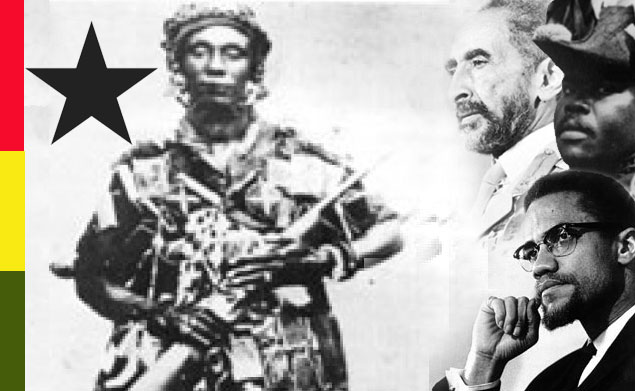
Yaa Asantewaa | Queen Mother of Ejisu
When asked “what advantage do women have over men?", recently crowed Miss Universe 2011 Leila Lopes declared that “women are more powerful than men… they can do everything a man can do and more.” While many men probably brushed off her comments and instead chose to focus on the stunning contestant’s beauty, her comments were welcomed and celebrated by women around the world. Despite their ascribed subaltern position in a male dominated world, many women have long argued that if given the full opportunity to exercise the power we possess in this world, the world will be a better place. This is not to argue that men are a not the chosen leaders of their families nor to insinuate in any way that men are inferior to women, but rather, it is said to affirm the strength and power women possess – a fact denied to far too many women around the world.
While the current Miss Universe Leila Lopes will inevitably serve as a positive role model and inspiration for Africans (African as expressed in this piece refers to all Africans throughout the Diaspora), there were other courageous and inspirational women who have paved the way for her. Threatened by the invasion of the British and their incoming encroachment upon her nation’s sovereignty and authority, Yaa Asantewaa demonstrated strength, courage and resilience when she led the men of Asante (Asante Warriors) in battle against the British. With all of the male leaders of her tribe, including her brother Nana Akwasi Okpese the ruler of Ejisu (now part of modern-day Ghana) and the King of Asante Prempeh I, exiled to Seychelles, the Queen Mother of Ejisu exercised the strength of a woman by not only calling on her fellow men but also fellow women to lead the Asante rebellion against the British. The goal of the “war of the Golden Stool” in 1900 was to defend the symbol of their nation, the Golden Stool (the supreme symbol of the sovereignty and authority of the Asante people) and bring her King back to his rightful place.
In a secret meeting with the remaining Asante chiefs on how to defend their nation, Yaa Asantewaa expressed her fearlessness by stating:
“Now I see that some of you fear to go forward to fight for our king. If it [was] in the brave days of Osei Tutu, Okomfo Anokje, and Opoku Ware, chiefs would not sit down to see their king to be taken away without firing a shot. No European could have dared speak to chiefs of Asante in the way the governor spoke to you this morning. Is it true that the bravery of Asante is no more? I cannot believe it. It cannot be! I must say this: if you, the men of Asante, will not go forward, then we will. Noi, the women, will. I shall call upon my fellow women. We will fight! We will fight till the last of us falls in the battlefields.”
Although the British will eventually become successful in their quest on January 1st, 1902 to make the Asante Empire a protectorate of the British crown, Queen Mother of Ejisu led a very fierce battle to prevent the oppression and injustice of the British colonial system from impinging on her empire’s independence.
Although Yaa Asantewaa would also suffer the faith of the brother and King by being forced into exile, where she passed away on December 27th, 1924, her strength, courage and determination continues to be revered and celebrated by Ghanaians and by women around the world. Along with a girl’s high school being built in her honour, Ghanaians often conduct yearly celebrations honouring her legacy. She stands as an example of how women can do everything a man can do, even when men themselves are afraid to step-up and defend their nation.
Ultimi post di Non cambiare (vedi tutti)
- Prima di Rihanna era Grace Jones - Dicembre 27, 2014
- Marimba: Espressione di libertà, eppure i miei afro-ecuadoriani… - Dicembre 25, 2014
- Chi fa pretesa di essere il Reggae capitale del mondo? - Dicembre 24, 2014



